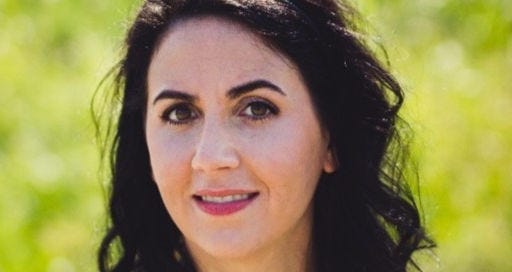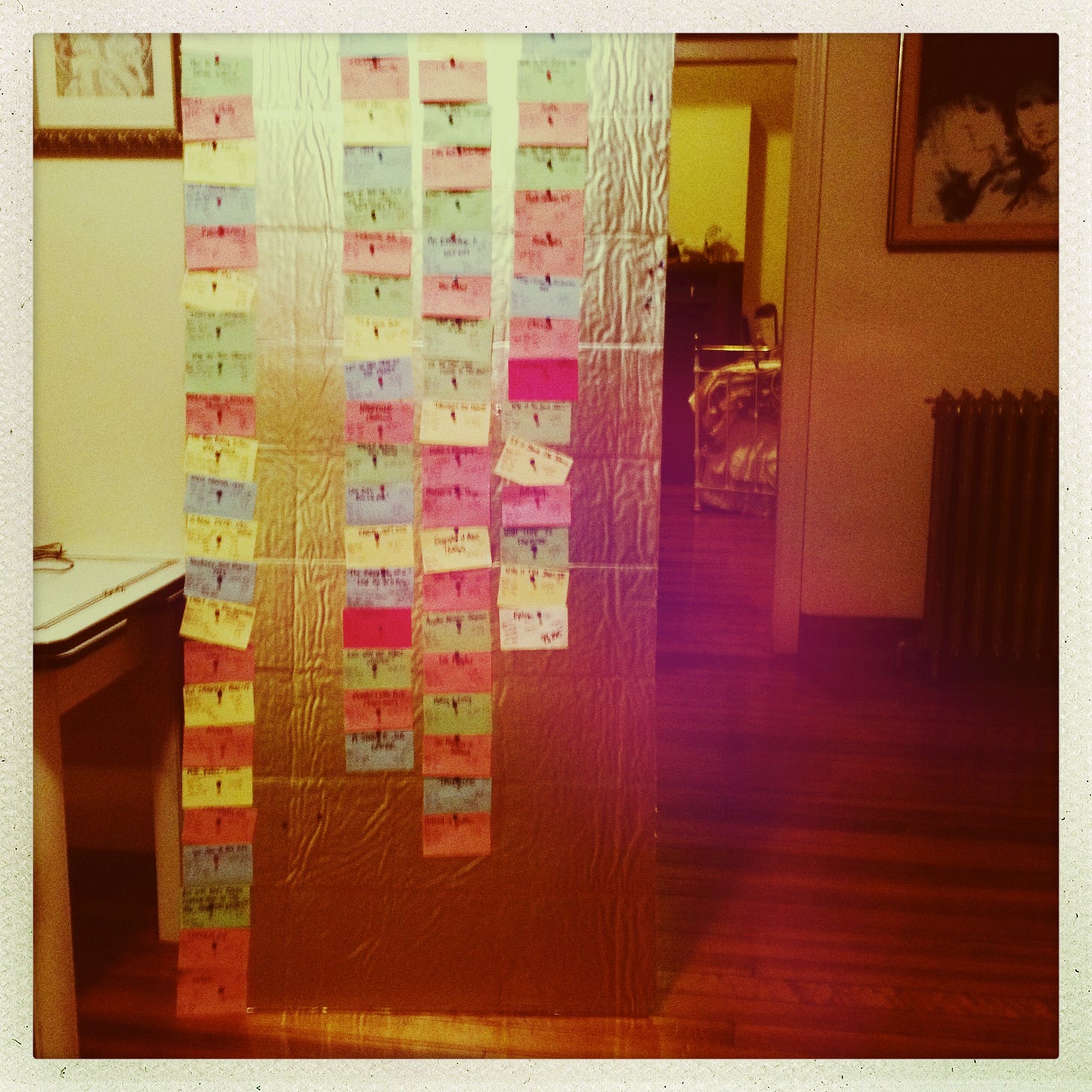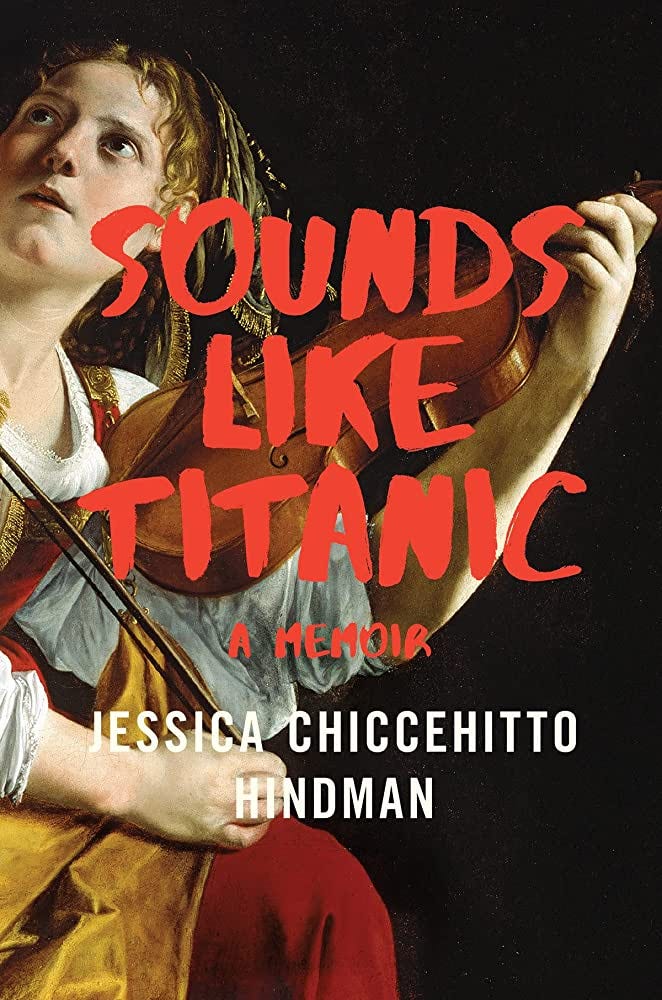6 Questions with Memoirist Jessica Chiccehitto Hindman
We talk about her bonkers book “Sounds Like Titanic”
Every few months, I recommend Sounds Like Titanic, Jessica Chiccehitto Hindman’s memoir of pretending to play the violin in a fake orchestra, to a friend. And without fail, they come back to me saying, “Oh my god. That book is so good.”
As I’ve written before, “At the beginning of each performance, a member of the orchestra would stealthily hit play on a CD of the composer’s music, and the musicians would spend the concert pretending to play their instruments. Adding to the absurdity, the orchestra’s repertoire sounded nearly identical to “Titanic’s” soundtrack. I’ve listened to the composer’s music and the “Titanic” soundtrack back-to-back and don’t know how the composer didn’t get sued. They’re remarkably similar.” (Side bar: I went to one of Jessica’s book events where someone pretended to play the violin and I couldn’t tell.)
In between recounting this bizarre tale (and the truly wacky composer who had apparently never heard Beethoven’s Fifth), she reflects on the nature of truth, post 9/11 America and shares sharp observations on class in the U.S.
Jessica was kind enough to talk with me about her book, the writing process and what’s next for her.
What was your path to writing and publishing?
It was so long. It took me 13 years from the sort-of first draft to it coming out. There were so many years of thinking ‘No one is going to read this. Certainly, no is going to like it. This book is too weird.’
I started writing it when I was applying to grad school. I saw it more as a piece of cultural criticism — the chapter on classical music in the ‘90s and the “Mozart Effect” was the first thing I wrote. To this day, it blows me away with how obsessed this country became with the idea that classical music can make you smarter. It does not. People get so upset when I just say that. So, I originally saw the book as being an objective look at the how people thought about classical music in the ‘90s and 2000s.
Then, I got to grad school and everyone was writing a memoir. I didn’t really know what that was. I certainly didn’t think I wanted to write one. But as time went on, I saw the best way to tell this story was a first-person narrative.
It took me such a long time because I needed the funding of grad school to be able to have the time to write a book that had four threaded narratives. Tying all that together took a really long time, through my MFA and my PhD.
How did you keep track of all those threads while writing?
I had this piece of insulation board in my apartment with like 200 index cards on it all color coded and with every thread of this kind of that I would move around with the tags.
Certainly, when people came over to my little apartment, they thought, ‘Really Jessica has lost it.’
I moved things around to make sure every thread was being balanced and nothing was neglected for too long. The technical aspect of it was like literally lining it up to see how it all fit.
Have you heard from anyone who “played” in the orchestra with you since publishing?
I have not heard from the Composer, but I have heard from musicians who played with the group.
One of my favorite things about the process of publishing the book was that I had not talked to the character named Yevgeny in the book since he left the ensemble. I wanted to print the email where he quit, but to do that I needed to get permission. First it was just a task to track him down. Then, I sent him an email that said ‘Hi. Remember me from 10-15 years ago? I wrote a book and you’re a major character. Could you please sign these permissions?” He wisely asked if he could read it first. I sent him a PDF of the manuscript and he got back to me four or five hours later saying he loved it. Aside from my family, that was the best praise I’ve gotten. For him to validate it and say my memory was correct was amazing.
When the book came out in Russian I was able to send him a copy. I couldn’t read it, but he said they did a good job with it.
Speaking of memory, so much of your book focuses on truth and reality. How did you think about presenting your story while also writing a book that asks ‘what is truth?’
It's so tricky and scary because I wanted to say ‘The composer is fake’ and I’m telling the real stuff, but also doubting every minute.
I kept a meticulous journal when I toured. I think the reason those chapters pop and they carry the narrative forward is because I have notes of what people said word for word. The part of the book people don’t believe most is the one where the Composer says he loves Beethoven and they put on Beethoven on the bus and he says ‘What is this?’ People think that could never happen. I know it happened because it was so ridiculous, I wrote it down, not only in my journal but I also put it in email the next day.
The other helpful thing is that the character Harriet was constantly videotaping everything. She sent me her videotapes, like nine hours of the tour, so I have word-for-word what people are saying.
But it wasn't everything. The childhood scenes required reconstructing from the best of my memory, and my parents’ memory, but it’s probably not as sharp as it seems.
It's the more mundane scenes that are more constructed, more fallible. I tried to be as honest as possible. I would probably try to build even more scaffolding into a future book about saying ‘In my memory, this is what happened.’
Is there anything you’re working on now you can preview?
I am working on another memoir. Sadly, no goofy composer in this one.
I'm looking at the intersections between education and motherhood. I became a mom about two years ago and I teach college. I'm thinking of the way money connects these two experiences. We think of womanhood as having two major paths of education and motherhood, and they keep intersecting and challenging one another. Often, at those intersections, you'll see some sort of financial incentive or disincentive, like my egg donation.
The catalyst for this was when I was giving birth. Nothing went as expected. At the end of 14-to-16-hour traumatic experience, everybody had left. It was just my husband, me, our baby and the one nurse who had been with us the entire time through everything and probably saved my life several times. She waited for everyone to leave the room and then tried to sell us a student savings account.
I haven't pieced it out yet, but there’s something in that moment to me that just encapsulates the American experience.
Lastly, any books you want to recommend?
This is an oldie but I’ve been teaching bell hooks’s Bone Black. I don’t think it gets enough attention. I never had to read this in grad school and I’ve come to realize that so many of the techniques that are becoming increasingly common in memoir hearken back to this book.
I just read Jeannie Vanasco’s Things We Didn’t Talk About When I Was a Girl. It’s a few years old, but I’m never going to be the person who’s like ‘This just came out last month but I’ve already read it.’ It takes my years. But Things We Didn’t Talk About When I Was a Girl is just an absolutely stunning memoir. It’s always interrogating its memory and it’s something I’ve been encouraging my students to read.
I’m reading right now Melissa Febos’s Body Work. It’s a craft text, but a really good craft text. I’m enjoying that one. And I just ordered Rebecca Makkai’s new book, I Have Some Questions for You. I cannot wait.
Thanks again to Jessica for chatting with me. You can follow her on Twitter and purchase Sounds Like Titanic here.
What to Read If is a free weekly book recommendation newsletter. Need a rec? Want to gush about a book? Reply to this email, leave a comment or find me on Twitter @elizabethheld.
If you’re reading this on Substack or were forwarded this email, and you’d like to subscribe, click the button below.
Disclosure: I am an affiliate of Bookshop.org and I will earn a commission if you click through and make a purchase.







Thank you for sharing your process, Jessica. And oh, man the turn at the end of your birth story!
I’m also a fan of Jeannie’s book. If anyone wants to read Jeannie Vanasco’s latest essay, it has moms and cats (well, her mom and her cat): https://www.nytimes.com/2023/01/24/magazine/jackson-galaxy-cat-video.html